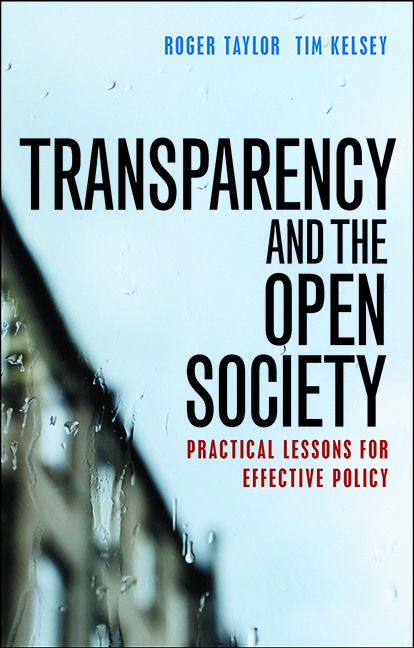20 - What happens next?
Published online by Cambridge University Press: 05 April 2022
Summary
In 2014, Sir Tim Berners-Lee, inventor of the World Wide Web, called for an international magna carta for the internet to be developed, to protect everyone's right to a perpetually open, free and universal web.
The internet has thrived by the collective empowerment of capable, public-spirited people: initially from the technical community and academia, and more recently, also the private sector in general, civil society and governments. We need a system of internet governance that allows each community to bring its particular strengths to the common table, but allows none of them to elevate its own interests above the public good.
We believe that the same principles should apply to transparency. We have argued that to achieve this it is necessary to share individual data with citizens and to enable multiple qualifying organisations to access data across populations.
A democratic society requires that individuals and organisations compete for influence, question each other's opinions and are able to do so from positions of sufficiently equal authority. We have argued that democratic plural access to population data sets for monitoring purposes is a necessary precondition if we wish to make proper use of big data and artificial intelligence. We have argued that individuals must have custody of the data about them and that, while they may be required to share that data in order to receive certain services, those services should then be subject to independent monitoring. We have maintained that the only time monopoly rights can exist over data about people is when the individuals are controlling information about themselves.
These arrangements are necessary in order to:
• Prevent the misuse of data assets to take advantage of people. While regulation may be of some help, a more efficient approach would be to enable competing interests to police each other through a process of scientific transparency, each one empowered to continually challenge the ways in which data is being used.
• Allow a pluralistic democratic debate about the fairness of institutional arrangements in society, based on competing narratives about their impact in improving both the fairness and efficiency of allocation systems.
• Create the conditions under which citizens can safely make use of big data technology to help them make decisions – be it deciding which treatment to opt for, what mortgage to take out or whether to accept an online date.
- Type
- Chapter
- Information
- Transparency and the Open SocietyPractical Lessons for Effective Policy, pp. 337 - 350Publisher: Bristol University PressPrint publication year: 2016



